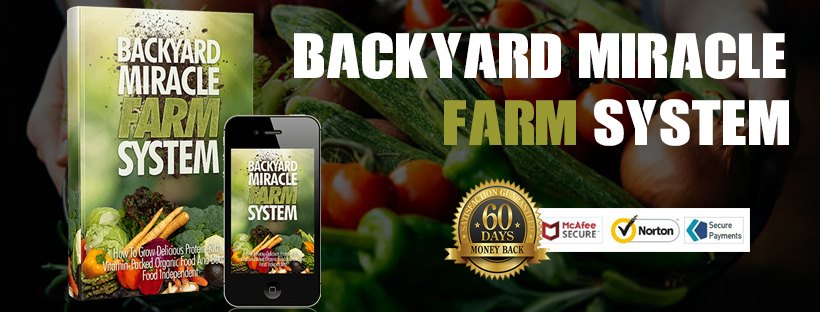
Top 10 Tips for Eating Organic: A Comprehensive Guide to Health and Sustainability
Discover how to make the switch to organic eating with these top 10 tips. Learn about the health benefits, shopping strategies, and sustainable practices that make organic foods a smart choice


The Ultimate Guide to Eating Organic: Health, Sustainability, and Delicious Choices
As the demand for healthier lifestyles and sustainable practices grows, the shift towards organic foods is becoming more prominent. Organic foods, grown without synthetic pesticides, fertilizers, GMOs, or irradiation, are more than just a trend—they represent a commitment to better health and a more sustainable planet.
This comprehensive guide will provide you with essential tips and insights on how to embrace organic eating, ensuring that you can make informed decisions and enjoy the full benefits of this lifestyle.
1: The Growing Appeal of Organic Foods
The appeal of organic foods is rooted in both personal health and environmental sustainability. Organic farming practices prioritize the health of the soil, ecosystems, and people, creating a holistic approach to food production. These practices include crop rotation, composting, and biological pest control, which contribute to the production of healthier, more nutrient-dense foods. As awareness of the potential health risks associated with conventional farming methods increases, more people are turning to organic foods as a safer, more nutritious alternative.
2: Prioritize Organic Produce
One of the most significant steps you can take in transitioning to an organic diet is to prioritize organic fruits and vegetables. Produce, especially those on the "Dirty Dozen" list like apples, strawberries, and spinach, is often exposed to a variety of chemicals during conventional farming. These chemicals can remain on the food we consume, potentially leading to a range of health issues over time.
Organic produce, on the other hand, is grown without synthetic pesticides and fertilizers, reducing your exposure to these harmful substances. In addition to being safer, organic fruits and vegetables often contain higher levels of essential nutrients like vitamins, minerals, and antioxidants, which are crucial for maintaining good health.
3: Start with Organic Basics
When beginning your organic journey, it can be helpful to start with the basics. Organic grains, beans, and nuts are widely available and can be easily integrated into your meals. These staples provide a solid foundation for a healthy diet and are often richer in nutrients than their conventionally grown counterparts.
For example, organic whole grains like quinoa, brown rice, and oats are excellent sources of fiber, vitamins, and minerals. Organic beans and legumes, such as lentils and chickpeas, are packed with protein, fiber, and essential nutrients, making them an excellent addition to any diet. Nuts like almonds, walnuts, and cashews, when grown organically, offer healthy fats, protein, and a variety of vitamins and minerals.
4: Embrace Organic Dairy and Meat Products
Choosing organic dairy and meat products is another crucial step in your organic journey. Organic dairy products, including milk, cheese, and yogurt, come from animals that are raised without antibiotics, growth hormones, or genetically modified feed. This ensures that the dairy you consume is free from potentially harmful substances and is often richer in nutrients like omega-3 fatty acids, which are beneficial for heart health.
Similarly, organic meat and poultry are sourced from animals that are fed organic feed and raised in more humane conditions. These practices not only benefit animal welfare but also result in meat that is free from antibiotics and hormones, making it a healthier choice for you and your family.
5: Shop at Farmers' Markets and Support Local Agriculture
Farmers' markets are excellent places to find fresh, seasonal, and organic produce. Local farmers often use organic methods even if they are not certified, providing you with an opportunity to ask questions and learn more about their farming practices. By shopping at farmers' markets, you can support local agriculture, reduce your carbon footprint, and enjoy the freshest produce available.
In addition to produce, many farmers' markets also offer organic dairy, meat, and other products, making it easy to find everything you need in one place. Shopping locally not only supports your community but also ensures that you are getting the highest quality foods.
6: Read Labels Carefully: Decoding Organic Certifications
Understanding organic labels and certifications is essential when shopping for organic foods. Not all organic labels are created equal, and it's important to know what to look for to ensure that you are truly buying organic products.
The USDA Organic label is one of the most widely recognized certifications, indicating that a product meets strict guidelines set by the United States Department of Agriculture. This label ensures that the product is free from synthetic pesticides, fertilizers, and GMOs, and that it was produced using sustainable farming practices.
In addition to the USDA Organic label, there are other certifications to be aware of, such as the EU Organic label and the Canadian Organic Regime. These certifications also adhere to strict standards, ensuring that the products are genuinely organic.
It's important to be cautious of labels that use terms like "natural" or "all-natural," as these are not regulated and do not guarantee that a product is organic. Always look for certified organic labels to ensure that you are making the healthiest choices.
7: Grow Your Own Organic Food
If you have the space and time, growing your own organic food can be a rewarding and cost-effective way to incorporate more organic foods into your diet. Whether you have a small garden or just a few pots on a balcony, you can grow a variety of organic herbs, vegetables, and even fruits.
Starting a small organic garden allows you to control what goes into your food and ensures that it is free from harmful chemicals. Plus, homegrown produce is often fresher and more flavorful than store-bought options. Gardening can also be a relaxing and enjoyable hobby that connects you with nature and provides a sense of accomplishment.
8: Cook from Scratch: Elevating Your Meals with Organic Ingredients
One of the best ways to ensure that your meals are truly organic is to cook from scratch. By preparing your meals at home, you have complete control over the ingredients you use, allowing you to choose organic options and avoid unwanted additives.
Cooking with fresh, organic ingredients can elevate the taste and nutritional value of your dishes. Simple recipes like organic vegetable stir-fries, homemade soups, and salads made with organic greens and nuts can be both delicious and nutritious. Experimenting with organic ingredients can also inspire creativity in the kitchen and help you discover new favorite dishes.
9: Plan Your Meals: Staying on Track with Organic Eating
Meal planning is a valuable tool for anyone looking to incorporate more organic foods into their diet. By planning your meals in advance, you can ensure that you have the right ingredients on hand and reduce the temptation to opt for non-organic convenience foods.
When planning your meals, start by selecting a few organic staples that you enjoy and build your meals around them. For example, you could plan a week's worth of dinners using organic grains, vegetables, and proteins. This approach makes it easier to stick to your organic eating goals and can save you time and money in the long run.
10: Understand the Health Benefits of Eating Organic
One of the most compelling reasons to choose organic foods is the health benefits they offer. Organic foods often contain higher levels of essential nutrients like vitamins, minerals, and antioxidants, which are important for maintaining good health.
Studies have shown that organic fruits and vegetables can have significantly higher concentrations of antioxidants compared to conventionally grown produce. Antioxidants play a crucial role in protecting the body from oxidative stress, which can lead to chronic diseases like heart disease and cancer.
In addition to higher nutrient levels, organic foods are free from synthetic pesticides, herbicides, and fertilizers, which have been linked to a range of health issues, including hormonal disruptions, neurological disorders, and cancer. By choosing organic, you can reduce your exposure to these harmful chemicals and lower your risk of developing these conditions.
Overcoming Challenges: Making Organic Eating Affordable and Accessible
While the benefits of eating organic are clear, some people may find the cost of organic foods to be a barrier. However, there are several strategies you can use to make organic eating more affordable and accessible.
One approach is to prioritize the organic foods that are most important to you, such as the "Dirty Dozen" fruits and vegetables, while opting for conventionally grown options for items that are less likely to be contaminated with pesticides. You can also look for sales, buy in bulk, or join a community-supported agriculture (CSA) program to save money on organic foods.
Another way to make organic eating more affordable is to focus on seasonal produce, which is often less expensive and more readily available. Farmers' markets and local grocery stores are great places to find seasonal organic produce at a lower cost.
Conclusion: Embrace the Organic Lifestyle
Switching to an organic diet is a powerful step towards improving your health and supporting a more sustainable planet. By prioritizing organic produce, dairy, and meat products, shopping at farmers' markets, and understanding organic labels, you can make informed choices that benefit both you and the environment.
While the transition to organic eating may come with challenges, the long-term benefits far outweigh the initial obstacles. With careful planning, a commitment to cooking from scratch, and a willingness to explore new foods and recipes, you can enjoy a delicious, nutritious, and environmentally friendly diet.
Remember, every organic choice you make contributes to your well-being and the health of the planet. Start small, stay consistent, and soon you'll find that eating organic becomes second nature. Share your journey with others and inspire them to embrace the organic lifestyle as well. Together, we can create a healthier, more sustainable world.
Copyright © 2025 Djedi Living. All rights reserved.
Disclaimer
This site is not intended to provide and does not constitute medical, legal, or other professional advice. The content on DjediLiving.com is designed to support, not replace, medical or psychiatric treatment. Please seek professional care if you believe you may have a condition.
DjediLiving.com may earn affiliate income from qualifying purchases.
Before using the site, please read our










